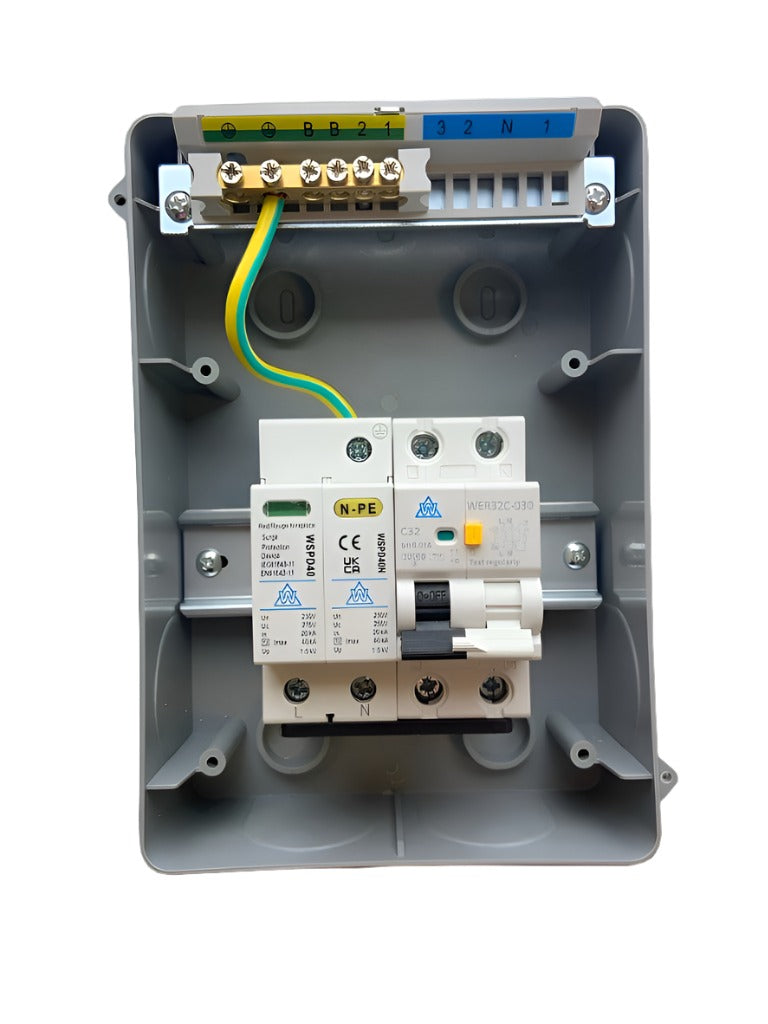The Duty of Consumer Units in Reliable Energy Management Systems
Customer systems are important to effective energy monitoring systems, acting as the primary distribution points for electrical power within frameworks. By integrating breaker, they safeguard circuits from potential overloads, thus maintaining safety and avoiding extensive blackouts. The advent of wise innovations has actually even more improved their capability, permitting for real-time information surveillance and nuanced energy consumption analysis. This integration not only optimizes energy use but additionally helps with the incorporation of renewable resource resources, consequently promoting sustainable practices. Exactly how, then, do these advancements equate to concrete advantages in daily power administration?
Understanding Consumer Devices

Understanding the role of consumer units begins with acknowledging their vital feature in safeguarding electrical systems. By separating mistakes within specific circuits, consumer devices stop extensive outages and prospective fire risks. This seclusion is attained through the use of circuit breakers that trip or integrates that impact when a fault is spotted, thereby removing the electric flow to the impacted circuit.
Moreover, customer units facilitate the well organized circulation of power, enhancing the performance of power usage. They enable for the systematic monitoring of electrical lots, which can be especially essential in commercial and business setups where need can change considerably. Properly maintained consumer systems add to the long life of electric systems and aid in reducing downtime triggered by electric failings, eventually sustaining the seamless procedure of energy-dependent facilities.
Smart Technologies Integration

An essential benefit of smart customer units is their ability to utilize advanced formulas and artificial intelligence for anticipating analytics. This enables preemptive adjustments based on use patterns, weather prediction, and various other variables, significantly increasing total performance. Clever consumer units assist in need response programs, where energy usage can be dynamically adjusted throughout top periods to stabilize the grid and reduce expenses.
The integration of renewable resource sources, such as solar and wind, is also structured with wise customer devices. By smartly managing the intermittency of these sources, these systems make certain a balanced and trusted energy supply. In addition, smart consumer systems boost individual involvement by supplying comprehensive understandings and push-button control capabilities via mobile applications, fostering a much more aggressive strategy to energy conservation and sustainability.
Monitoring Energy Consumption
Building on the capabilities of smart modern technologies integration, monitoring power consumption comes to be a vital emphasis within power monitoring systems. By leveraging sophisticated metering framework (AMI), real-time data on energy use can be gathered at granular levels, giving valuable insights into consumption patterns and peak need periods.
Smart meters and Web of Points (IoT) devices play a critical role in this monitoring procedure. These gadgets can track power use in real-time, transferring information to centralized systems for analysis. The accumulated information is then processed via read the full info here innovative formulas to detect anomalies, anticipate future usage, and recommend optimization methods. Furthermore, cloud-based solutions use scalable platforms for storing and evaluating large datasets, assisting in remote tracking and control.
The assimilation of these innovations not just encourages consumers with detailed details regarding their power usage but also sustains energy suppliers in taking care of lots distribution better. Ultimately, exact and continual tracking is essential for achieving energy performance, cost financial savings, and sustainability objectives within power monitoring systems.
Optimizing Appliance Use

One effective method involves recognizing peak and off-peak hours to move energy-intensive tasks, such as washing or dishwashing, to times when power demand is lower. This not only reduces strain on the grid but also exploits on reduced energy tolls. In addition, incorporating artificial intelligence formulas permits anticipating upkeep, ensuring devices run at optimum efficiency and extending their life expectancy.
Energy administration systems can likewise incorporate user-specific choices and behaviors to customize home appliance use timetables. Wise lighting systems can adjust illumination based on occupancy and all-natural light accessibility, while Heating and cooling systems can keep comfort levels without too much power usage.
Supporting Sustainability
Advertising sustainability within power monitoring systems involves not only boosting efficiency but additionally fostering environmentally liable practices. Customer systems are integral to this process, as they give real-time data and control systems that enable individuals to monitor and decrease their power intake. By leveraging advanced technologies, consumer systems can recognize energy-saving chances and assist in the integration of eco-friendly energy resources like solar and wind power.
One crucial facet of advertising sustainability is enlightening customers on the advantages of liable power usage. With in-depth understandings given by consumer units, individuals can make informed choices that decrease their carbon footprint. These systems can suggest optimum times for running high-energy devices based on grid need and sustainable power accessibility, thus decreasing reliance on fossil fuels.
Additionally, consumer systems sustain the fostering of smart grid modern technologies, which improve the total effectiveness and reliability of energy distribution. By enabling two-way interaction in between customers and energy service providers, these systems can dynamically adapt to energy needs, lowering waste and advertising the use of lasting power methods.
Final Thought
Consumer devices, as integral components of power administration systems, significantly enhance electrical safety and security and performance within structures via circuit security and clever innovation integration. In addition, the consolidation of sustainable energy resources promotes lasting practices, contributing to decreased general power intake and lower carbon footprints.
Advances in clever technologies have reinvented the you can try this out capabilities of energy monitoring systems, particularly with the combination of wise customer units.Building on the capabilities of wise modern technologies assimilation, keeping an eye on power usage ends up being a crucial emphasis within power administration systems.Efficient home appliance usage optimization is an essential part of energy management systems, aiming to enhance efficiency and lower unnecessary energy intake.Customer devices, as indispensable parts of power management systems, substantially boost electrical safety and security and effectiveness within structures via circuit defense right here and clever technology integration. In addition, the incorporation of renewable power sources advertises sustainable practices, adding to reduced total power consumption and lower carbon footprints.